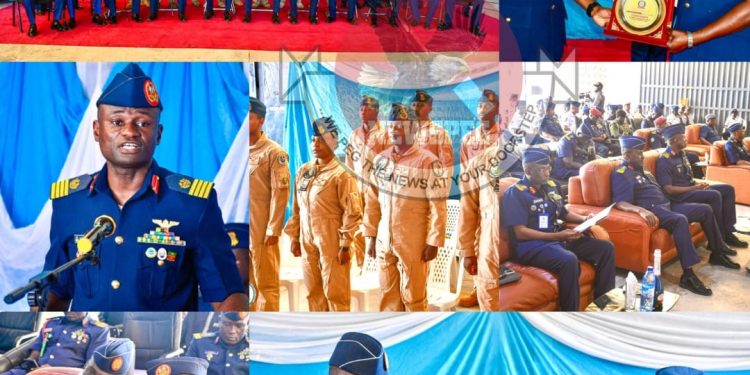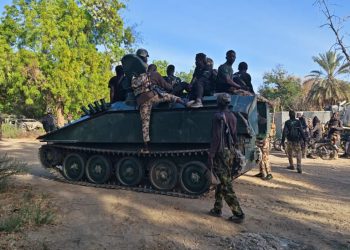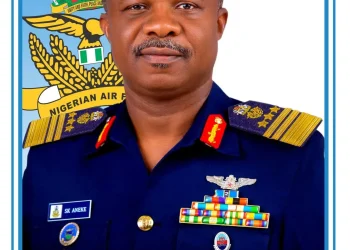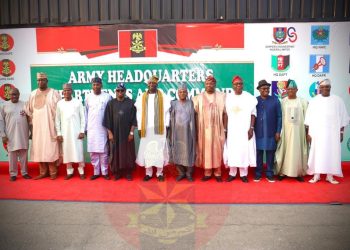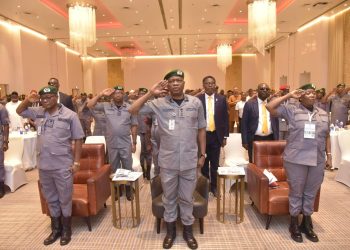In a significant stride toward enhancing Nigeria’s air power capabilities, the Nigerian Air Force (NAF) has graduated a new batch of combat-ready Unmanned Aerial Vehicle (UAV) operators, reinforcing its commitment to intelligence-driven operations and sustained battlespace dominance. The event, which marked the completion of Operational Conversion Training Course 3/2024, took place on Wednesday, July 24, 2025, at the 233 Wing Hangar in Kaduna.
The graduation ceremony signals another bold step in the NAF’s drive to expand its Intelligence, Surveillance, and Reconnaissance (ISR) capacity, particularly in support of ongoing counterinsurgency and internal security operations across the country.
According to a statement issued by the Director of Public Relations and Information, Air Commodore Ehimen Ejodame, the Chief of the Air Staff (CAS), Air Marshal Hasan Bala Abubakar, described the graduation as a strategic milestone in Nigeria’s battle against asymmetric threats. The CAS was represented at the occasion by the Air Officer Commanding Tactical Air Command, Air Vice Marshal Patrick Obeya.
“This is not just a ceremony; it is a reaffirmation of our resolve to dominate the battlespace through precision ISR and coordinated joint operations,” said Air Marshal Abubakar in his address to the graduating officers. “These young men and women are now key players in our mission to secure Nigeria from the skies.”
The Air Chief praised the graduates for their resilience and professionalism throughout the rigorous training process, reaffirming his vision to develop a highly skilled, agile, and mission-focused force capable of responding swiftly to evolving threats. He urged the new UAV operators to uphold the core values of discipline, competence, and dedication to duty.
“The Nigerian Air Force is counting on your competence, discipline, and sense of duty to deliver actionable intelligence and enable successful joint force operations,” he charged.
Air Marshal Abubakar also highlighted the importance of continuous innovation and lifelong learning in modern warfare, especially in the UAV domain, which he described as rapidly evolving and increasingly central to global security operations. He encouraged the new operators to engage closely with engineers, intelligence analysts, and fellow aircrew to ensure that their contributions remain relevant and effective in complex battle environments.
“As you go forward, remember that success in modern conflict requires not just flying skills, but the ability to fuse data, think strategically, and act decisively,” he said.
The NAF’s continued investment in UAV capabilities reflects its commitment to leveraging technology to meet Nigeria’s security demands. With insurgent threats and criminal activities adapting to conventional deterrents, UAVs offer a decisive edge, providing real-time intelligence, enhanced surveillance, and surgical strike capability while minimizing risk to personnel.
The graduation ceremony was attended by senior military officials, family members, and well-wishers, all of whom witnessed what the CAS described as “a crucial investment in national security.” The event also served as a reminder of the growing role of UAVs in Nigeria’s defence strategy and the importance of building a robust, tech-savvy force to match evolving security dynamics.


